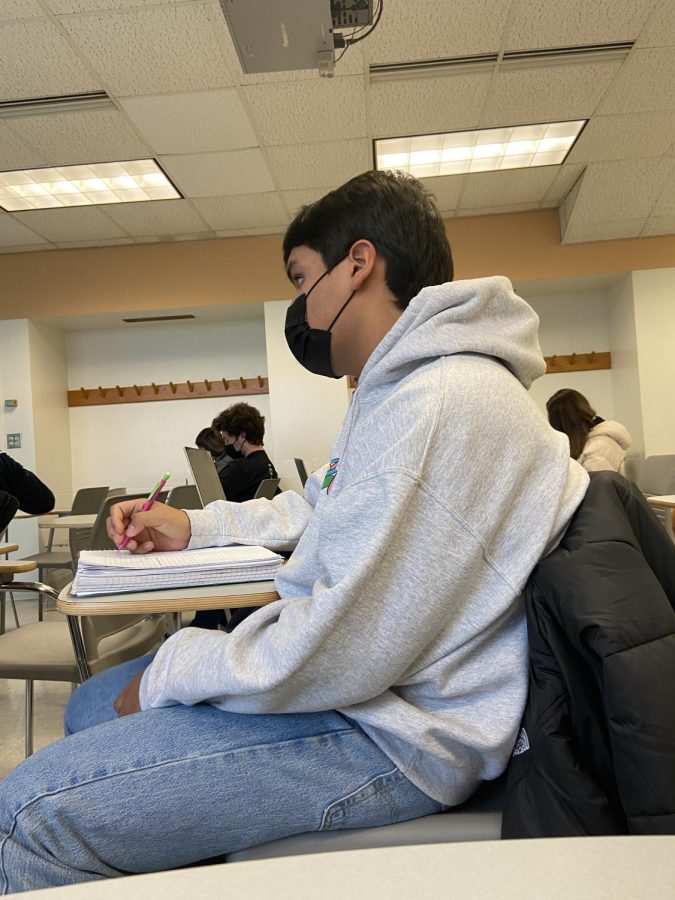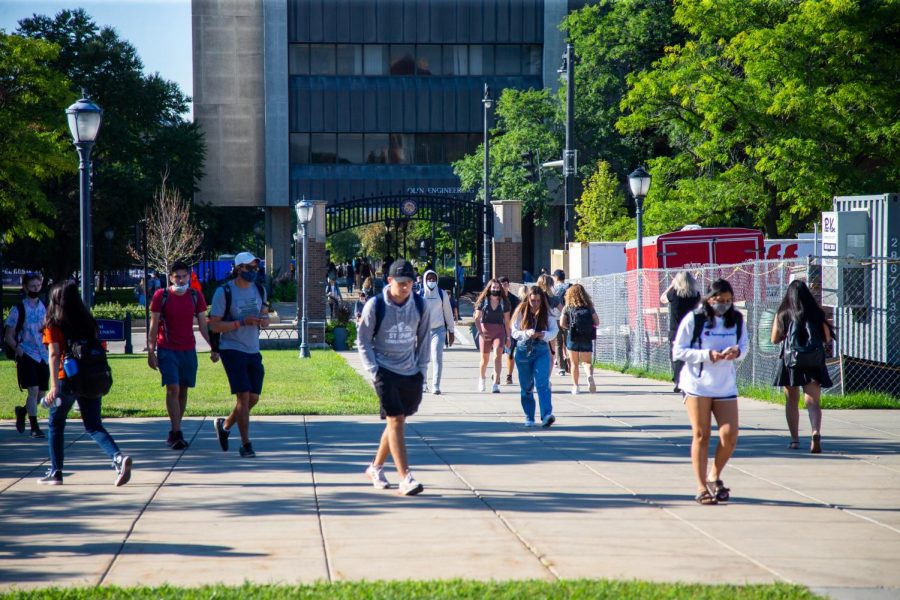With the number of coronavirus cases consistently increasing across the United States, colleges and universities are having to consider extending online learning during the fall 2020 semester.
If this step of online learning needs to be taken, institutions should provide lowered tuition rates for the students intending to enroll in these collegiate courses during the next semester.
As of April 20, there is a total of 746,625 cases in the United States, and that total is still rising at a rate of more than 25,000 daily.
Parts of the U.S. population are compromising efforts to flatten the curve and limit the spread of the coronavirus by ignoring the Centers for Disease Control and Prevention’s and World Health Organization’s health safety precautions. People are still refusing to social distance and quarantine themselves because they underestimate the severity of the situation, despite the enormous scientific backing.
Because of actions like these, the country is stuck trying to find long-term solutions to continually important aspects of life, like education.
The American Association of Collegiate Registrars and Admissions Officers surveyed 262 colleges and universities and found that 58% of colleges said they are either considering or have already decided to stay completely online during the fall 2020 semester.
Boston University said in an online statement that it must be prepared for the possibility that in-person classes could not resume until January 2021. Lawrence S. Bacow, president of Harvard University, also said in a April 15 statement that the institution is preparing for possible changes in the fall.
This continuation of remote learning should come with a reduced tuition rate for college students.
Students are left in a particularly tumultuous situation, uncertain and confused about both the state of their schools and their own financial situations. Some people are left without jobs, either because they cannot continue on-campus employment or because their occupations are deemed unessential. This means some students are already unsure about their next paycheck on top of paying for a semester of school.
One single credit hour at Marquette during a regular fall or spring semester is estimated to cost roughly around $1,075 while online courses are offered at a reduced rate of $750 per credit hour. The difference can add up when a student is enrolled in anywhere from 15 to 21 credits.
As online courses are normally that price — and students are receiving similar experiences with remote learning — the tuition rate students are expected to pay should be decreased.
Not only are students under financial stress, but the environment of remote learning is completely different than attending classes in-person.
Online classes are structured in a way that can easily cause certain students to not succeed. They require a lot of self-discipline and motivation, which many students find hard to maintain in the current unique circumstances.
Being at home allows for greater chances of distraction and limitations to learning as students may be grappling with familial issues and concerns. Compared to home environments, the structure of a traditional classroom gives many students a better environment to understand the material and learn important organizational and time management skills.
The inability to participate in outside organizations during quarantine, such as sports, clubs or jobs, may also cause some students to feel like they have all the time in the world to complete an assignment. Certain students can delay their work as much as possible without the requirement of being on a strict schedule.
Online classes also result in a large reduction of social interactions with peers and professors. The absence of these relationships during quarantine can cause students to lose interest and comprehension of the the material. According to Purdue Global, research indicates that a distributed model of group studying in online courses can be slowed and at a disadvantage.
There is research that shows online learning has a lot of advantages for students, but overall, studies find that one format is not better than the other. It is completely dependent on the student which shows that some students might be having lots of difficulty succeeding online with their learning methods.
Students who enroll in traditional in-person colleges and universities expect to receive that particular type of experience. Students should not be forced to pay the same amount when this quarantine period restricts the fulfillment of those expectations.
There are also a lot of resources not available online that are available otherwise on Marquette’s campus such as the Medical Clinic and Counseling Center. The Medical Clinic and Counseling Center are no longer open for in-person appointments. Other locations like gyms and recreation centers are also closed during the pandemic.
Marquette charges its students $348 for these facilities on campus. Those costs should not be required for students when they cannot physically use them. Some of these services are still available remotely, such as the Counseling Center, but it cannot guarantee the same experience for the students. Access to some of these resources are also not clearly advertised to the student body.
The information and skills students are expected to learn through their college career is what prepares them for the outside world and their future careers.
The inability to fully absorb important and necessary material hinders students’ success, putting them at a disadvantage compared to others in their field. Because of this, colleges should be lowering tuition costs for students. If students have to continue remote learning for the fall 2020 semester, the institution must do what is necessary to prevent even more financial burdens on students and families.
This story was written by Aminah Beg. She can be reached at [email protected].














